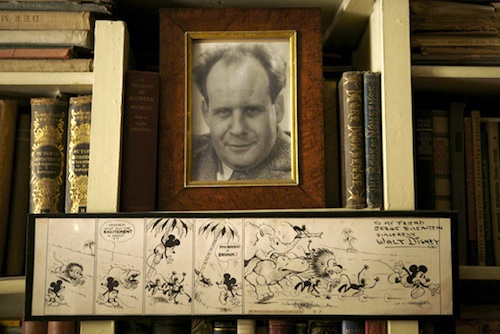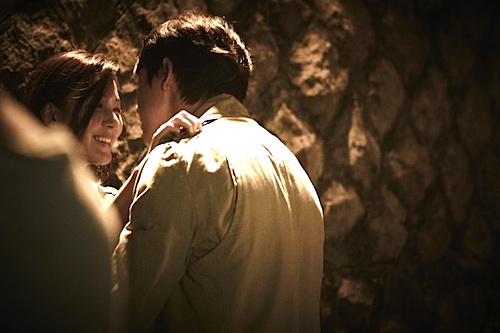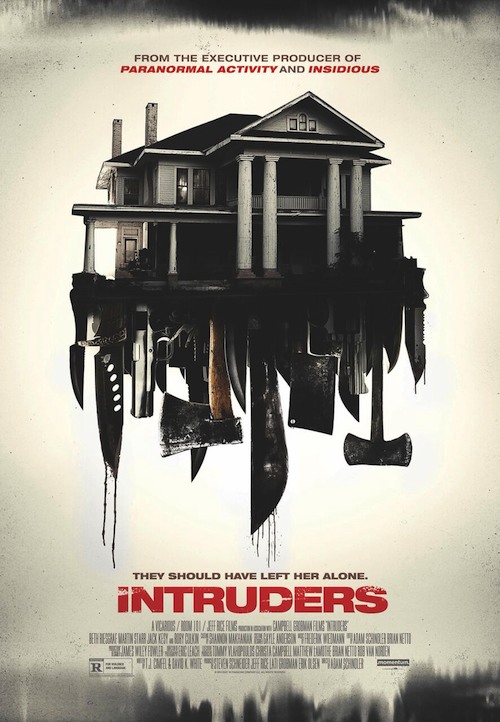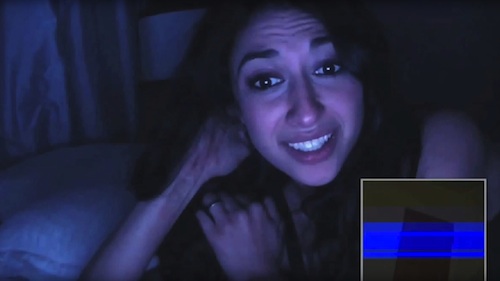By Joe Bendel. There is an evil horde of mindless killers bearing down on the Old City of Jerusalem, hell-bent on destruction. That could be any old Tuesday, except in this case, the rage-fueled monsters are supernatural. It turns out everyone who succumbed to Jerusalem Syndrome was right all along. The city has a connection to an ancient malevolent force that will manifest itself in apocalyptic fashion during the course of the Paz Brothers’ JeruZalem, which opens this Friday in Los Angeles.
Sarah and her rather less reserved bestie Rachel have come to Tel Aviv for some clubbing and a bit of fun in the sun. Sarah could use the break. She and her sad-eyed father are still mourning the death of her older brother. Before leaving, he gives her a set of internet connected eyeglasses that we should not automatically assume to be Google Glass. Inconveniently, her purse with her regular specs is swiped shortly after their arrival, thereby forcing her to wear her geek lens (credibly explaining why so much of the film will be duly recorded).
Instead of immediately hitting the beach, Kevin, the young hipster archaeologist on their flight convinces the women to take a detour to Jerusalem with him. At first, everything seems cool at their impossibly Bohemian hostile. Most conveniently, the Arab Israeli owner’s hard partying son knows where to score the best dope and hear the best music. Yet, there are signs here and there of something sinister stirring.
Suddenly, Kevin seems to contract a particular potent case of Jerusalem Syndrome. However, shortly after he is trundled off to the nearby asylum, throngs of winged demons attack the Old City. They are the spitting image of the creature seen in the exorcism prologue (a tape supposedly recovered from the Vatican archive). To make matters worse, their bite is apparently contagious, just like that of zombies.
There have been a lot of found footage horror films, but what really distinguishes JeruZalem is its heavy backstory and the eerily evocative use of Old City backdrops (shot guerilla-style by the Pazes). We are told in the opening preamble there are three doors to Hell, one in the ocean, one in the desert, and one in Jerusalem, which sounds unsettlingly plausible. The ostensive Vatican footage is also wickedly creepy.
Frankly, the first ten minutes are so scary, the Pazes really slow down for the rest of the first act to fully establish their three main characters. It is a strategy that ultimately pays off. Despite their conspicuous flaws, the audience actually emotionally invests in Kevin, Rachel, Sarah, and her skyping father far more than usual when it comes to the found footage sub-genre.

While the rarely seen Danielle Jadelyn and the American accent-challenged Yon Tumarkin are hit-and-miss as Sarah and Kevin, Yael Grobglas (also memorable in Rabies) absolutely shines as Rachel. Flirty and funny without descending into shtick, she demonstrates real megawatt star power.
The Brothers Paz prove the mere sight of some Old City back alleyways at night is plenty creepy, even without monsters. Together with cinematographer Rotem Yaron, they really capture the city’s ominous nocturnal atmosphere. Highly recommended for fans of found footage and demonic horror, JeruZalem opens this Friday (1/22) in LA at Laemmle’s Ahrya Fine Arts and next Friday (1/29) in New York at Cinema Village.
LFM GRADE: A-
Posted on January 19th, 2016 at 8:34pm.




